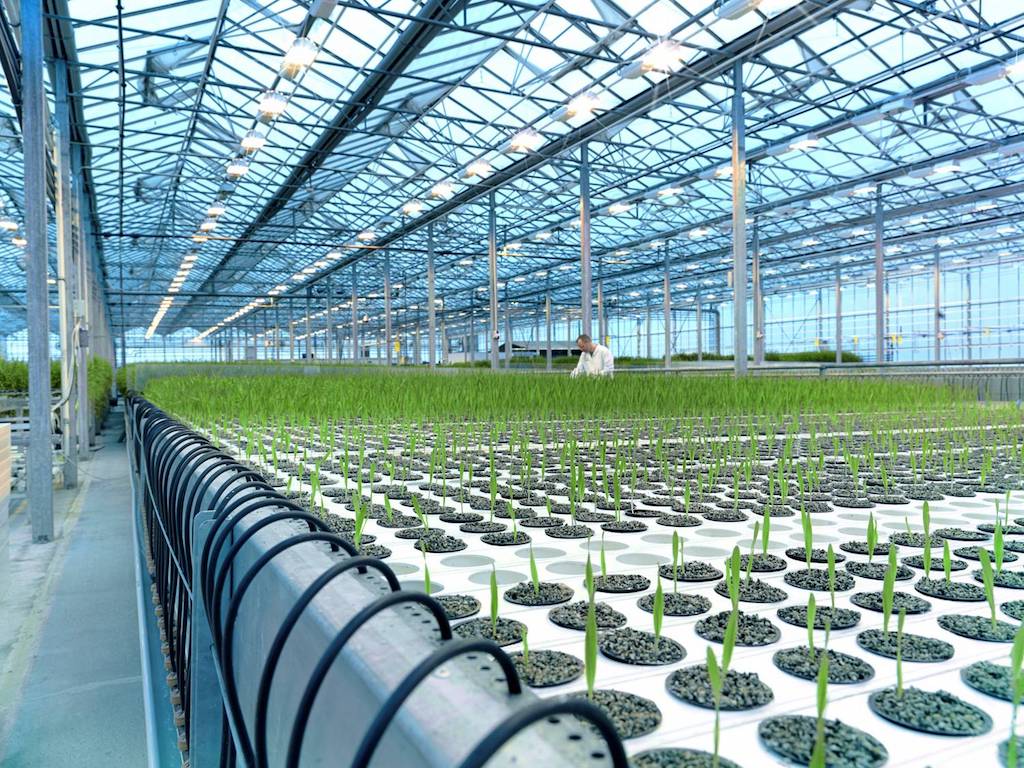Iceland Co Using Barley To Make Affordable Growth Factors For Cell-Based Meat
3 Mins Read
From cultivated seafood to beef and even exotic meats such as kangaroo, food techs have managed to develop all kinds of cell-based proteins. But many face one key obstacle in the race to slash costs and bring these products to market – affordable growth factors. Now, Iceland’s ORF Genetics is developing bio-risk-free growth factors for cell-cultured meats using barley, which the company believes is going to help dramatically reduce costs and expedite the scale-up process.
For over a decade, biotech firm ORF Genetics has been producing mostly human growth factors, but now, they’re expanding into animal growth factors. Called MESOkine, the Kópavogur-based company’s new bio-risk-free growth factors have been specifically developed for the cultivated meat industry, giving them access to a cost-effective ingredient for scaling-up their products.
The key ingredient? Barley. In the middle of the Reykjanes Peninsula sits the biotech company’s 2,000 square-metre eco-friendly greenhouse, fitted with a hydroponic system that uses volcanic pumice, which can nurture up to 130,000 barley plants at a time. ORF Genetics then uses the seeds from their bioengineered barley plants to produce and extract growth factors – the proteins that stimulate the growth of tissues, muscle and fat cells.
Described as a “novel, cost-effective, and very scalable production technology” compared to conventional growth factor sources such as E.coli bacteria or human tissue, ORF Genetics hopes to be able to begin testing MESOkine, developed for bovine, porcine and avian versions, starting in late 2021. This is estimated to be rolled out at prices that are 50% to 60% lower than competitors – with costs likely to tumble even more in the next five years.
“We are confident that ORF Genetics has the perfect production platform to drastically reduce the cost of growth factors in your cell-cultured meat production and to provide the quantity of growth factors required,” said Liv Bergþorsdottir, CEO of ORF Genetics.
While costs of producing cell-based meats have fallen over the years, such as cultivated food tech pioneer Mosa Meat’s feat to slash costs of its growth medium by 88-fold, growth factors remain a costly ingredient that is a roadblock to mass production and commercialisation.
Alongside plant-based substitutes, which are already on the market and have become hugely popular amongst consumers globally particularly in the wake of the pandemic, cultivated proteins are one of the core food technologies that will help bring about a more sustainable, ethical and safe food system.
We are confident that ORF Genetics has the perfect production platform to drastically reduce the cost of growth factors in your cell-cultured meat production and to provide the quantity of growth factors required.
Liv Bergþorsdottir, CEO of ORF Genetics
ORF Genetics isn’t alone when it comes to the focus on creating cost-effective ingredients to help accelerate the time it takes for cultivated meats to reach market readiness. Brussels-based Tiamat Sciences is using plant-based molecular farming technology to create a number of recombinant protein ingredients, including enzymes, antibodies, scaffolding and growth factors, also at a fraction of the price compared to their competitors.
They have plans to license out their technology and help manage internal production facilities to other food techs, with 6 partnerships with cultivated companies already in the pipeline. By 2040, Tiamat Sciences hopes to be able to supply half of the market’s cell culture media and other ingredients and aim to have their production facility launched next year.
Lead image courtesy of ORF Genetics.




